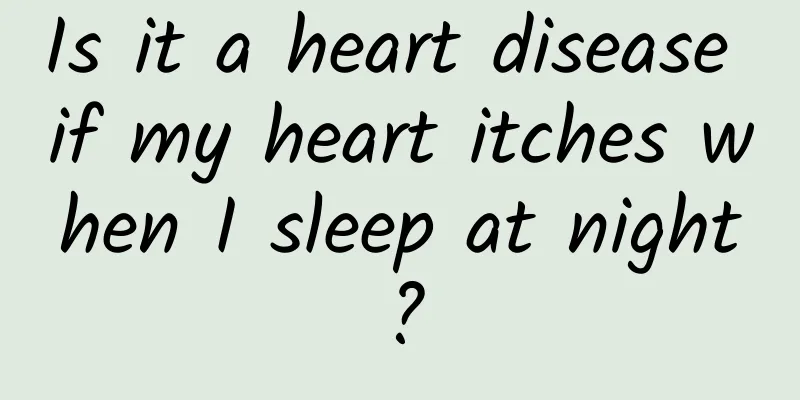Have you tried "16+8"? A study by West Lake University shows that intermittent fasting not only reduces weight, but also causes hair loss

|
"Light fasting" is a popular weight loss method recently, also known as intermittent fasting. Among them, the "16+8" light fasting method, which involves eating for only 8 hours a day and fasting for 16 hours, has been enthusiastically supported by netizens because it is easy to implement and effective. Many video bloggers will recommend light fasting recipes or share their "successful" experiences of losing 10 or 20 kilograms after sticking to the "16+8" method. However, a recent study by West Lake University showed that long-term "intermittent fasting" may mean choosing between keeping your body or keeping your hair. "Intermittent fasting" can induce apoptosis of activated hair follicle stem cells, thereby inhibiting hair follicle regeneration and hair growth. | Screenshot of the paper On December 14, a paper titled "Intermittent Fasting Triggers Interorgan Communication to Suppress Hair Follicle Regeneration" by Zhang Bing's team from the School of Life Sciences of Westlake University was published in the top international journal Cell. The study confirmed that in mouse experiments, intermittent fasting mice had improved metabolic health compared to mice that ate normally, but their hair grew more slowly. In a small clinical trial, similar hair growth inhibition may also occur in humans, but the effect is not as significant as in mice. “After ‘16+8’, my hair has indeed become thinner!” The reporter interviewed Zhang Bing, the corresponding author of the paper and a distinguished researcher at the School of Life Sciences of Westlake University. This scientific researcher, who focuses on the study of skin stem cell regulation and skin and hair regeneration, himself has black hair. | Zhang Bing Photo provided by the interviewee "I used to be an implementer of the '16+8' light fasting method." After graduating from Harvard University's Department of Stem Cell and Regenerative Biology as a postdoctoral fellow, Zhang Bing returned from the United States and joined West Lake University in Hangzhou, where he set up a laboratory. "At that time, I found that this method was quite effective when I gained weight after returning to China." But after the team came up with the results of this paper, Zhang Bing recalled that when he looked in the mirror, he did feel that his hair had become thinner. The same hair suppression also occurred in mice and in 49 healthy young people who participated in the team's clinical trials. In this experiment, the research team shaved the mice involved in the experiment. Some mice ate according to time restrictions, finishing their meals within 8 hours a day and then fasting for 16 hours. Other mice "lost weight" more severely. The team fed them with alternate-day feeding (ADF). To investigate the effects of intermittent fasting on hair follicle regeneration and hair growth, the research team observed hair growth in mice that were shaved and then subjected to different intermittent fasting regimens. Some mice were on time-restricted feeding (TRF), where they could eat within an 8-hour period each day and then fasted for 16 hours, while others were on alternate-day feeding (ADF). The research team found that mice in the control group that ate normal food without restriction almost completely regenerated their hair after 30 days, while mice that received two intermittent fasting regimens only grew some hair after 96 days. | Comparison of hair growth in three control groups of mice. Photo provided by the interviewee It is worth mentioning that there was no difference in the number of calories consumed by the several groups of mice in a day, but the longer the fasting time, the slower the hair growth. Afterwards, Zhang Bing's team collaborated with Zheng Jusheng's team from Westlake University School of Medicine to recruit 49 adults for a small clinical trial. They shaved a small one-square-centimeter area on the back of the subjects' heads and found that the average hair growth rate of the subjects who fasted for 18 hours a day was 18% lower than that of the control group who ate normally. In this experiment, there was no significant difference between male and female samples. However, Zhang Bing emphasized that due to the small sample size and short duration (10 days), larger-scale studies are still needed in the future to verify this effect. Hair follicles can also "feel" hungry Through further research, the team found that the hair growth of mice on an intermittent fasting diet was slow because a large number of stem cells in the hair follicles underwent apoptosis during the fasting period, causing the hair to "die before it even starts." Take humans as an example. There are an average of 100,000 hair follicles in a healthy adult's scalp. The growth and color of hair are determined by the stem cells inside the hair follicles. Zhang Bing introduced that hair follicles have a growth cycle, which is divided into three stages: growth phase, regression phase and resting phase. The hair follicles on our human scalp are in the growth phase most of the time, which is why hair keeps growing longer. | Hair follicle stem cells (blue) and fat (red) under fluorescent staining. Photo provided by the interviewee In the experiment, the hair follicle stem cells of mice that ate normally began to activate about 20 days after shaving, and continued to be active until hair growth was completed. The mice that underwent intermittent fasting experienced a repeated process of stem cell activation when eating and stem cell apoptosis when fasting, causing the hair follicles to "fail" and unable to grow hair normally. The longer the fasting time, the more obvious the negative impact on hair follicle regeneration. Why does hunger affect seemingly unrelated hair follicles? With the efforts of the team, the research is gradually unravelling the mystery. Through genetic engineering technology, researchers have discovered that when mice are hungry, their leptin levels decrease and their adrenal glands begin to secrete two hormones that promote lipolysis - cortisol and adrenaline. These hormones reach the skin through the blood circulation, thereby directing fat cells to break down and release large amounts of free fatty acids. It is these large amounts of free fatty acids that lead to excessive concentrations of free fatty acids near the hair follicles of fasting mice, and the stem cells are unable to cope with the oxidative stress caused by the switch from glucose metabolism to fat metabolism, and eventually die. At the same time, free fatty acids also induce apoptosis of human hair follicle stem cells in vitro. | Westlake University doctoral students Chen Han (right), Liu Chao (left) and Cui Shiyao (center) provided the picture for the three co-authors of this study Is it really impossible to have good hair and lose weight at the same time? Fortunately, the team also found a "relief" method for mice undergoing intermittent fasting. Experiments have found that compared with hair follicle stem cells, epidermal stem cells responsible for maintaining the epidermal skin barrier are not affected by intermittent fasting because they have stronger antioxidant capacity. Applying topical vitamin E to the mice or modulating antioxidant genes helped the hair follicle stem cells survive fasting. So, when intermittent fasting and hair growth maintenance are carried out at the same time, can the negative effects of fasting be offset? Zhang Bing believes that eating more "antioxidant" foods may help slow down hair suppression. "But this still requires more clinical trials to verify." At the same time, he also said that after a short period of "light fasting", apoptotic stem cells still have a chance to be reactivated. But if it continues for a long time, it may cause irreversible damage to the hair follicles. In previous experiments, mice that fasted for 8 months "emptied" the originally rich "stem cell pool". The research content of Zhang Bing's laboratory is closely related to everyone's physical health. Previously, Zhang Bing had discovered through research that mental stress accelerates the formation of gray hair, and this result was also listed in the top ten scientific discoveries of 2020 counted by Nature magazine. As modern society continues to develop, hair loss is becoming a topic of increasing concern. Zhang Bing said that the team is working hard to find new ways to treat hair loss and to come up with solutions for more skin diseases. In addition, stem cells not only exist in the skin system, but also play a core role in the renewal and repair of various systems in the body, such as the blood system and the intestinal system. "I hope that through the study of the mechanism of stem cells, we can bring new ideas for the treatment of more diseases and contribute to the health of the whole people," said Zhang Bing. (Source: Westlake University, Chao News, Xinhua News Agency) |
<<: Just smoking one cigarette will reduce your life by 20 minutes?
Recommend
How to regulate scanty menstruation after abortion
In fact, many female friends now have the phenome...
Can I eat cake during my period? The correct way to eat it is like this
Normally, many women like to eat cakes, but if th...
Causes of delayed menstrual period and breast pain
Breast pain caused by delayed menstruation is a c...
What can women eat to delay aging? Woolen cloth
“No flower stays red forever, and no person stays...
The causes of inverted nipples
The condition of the breasts directly reflects th...
What to do with uterine fibroid pain? TCM has a folk remedy
Uterine fibroids are a relatively common female u...
Urine test for women with high mucus
A small amount of mucus may exist in the urine of...
Can I use slimming packs for uterine fibroids?
Can Yangsen slimming pack be used to treat uterin...
What to do if a woman has vaginitis and vulvar itching
In fact, many white-collar women who need to sit ...
Is it normal to have a period every 24 days?
Menstruation is a sign of female sexual maturity....
Why does my period always come early?
Menstruation is a woman’s “best friend”. After th...
I just got pregnant and I have a little brown discharge
When a woman finds out that she is pregnant, she ...
What are the dangers of taking long-acting contraceptive pills?
People nowadays are more open-minded. They have s...
What are the benefits of eating water chestnuts? How to eat fresh water chestnuts
The flesh of water chestnut is edible, and the te...
Can I eat beef tendon during menstruation?
Female friends often experience discomfort during...









